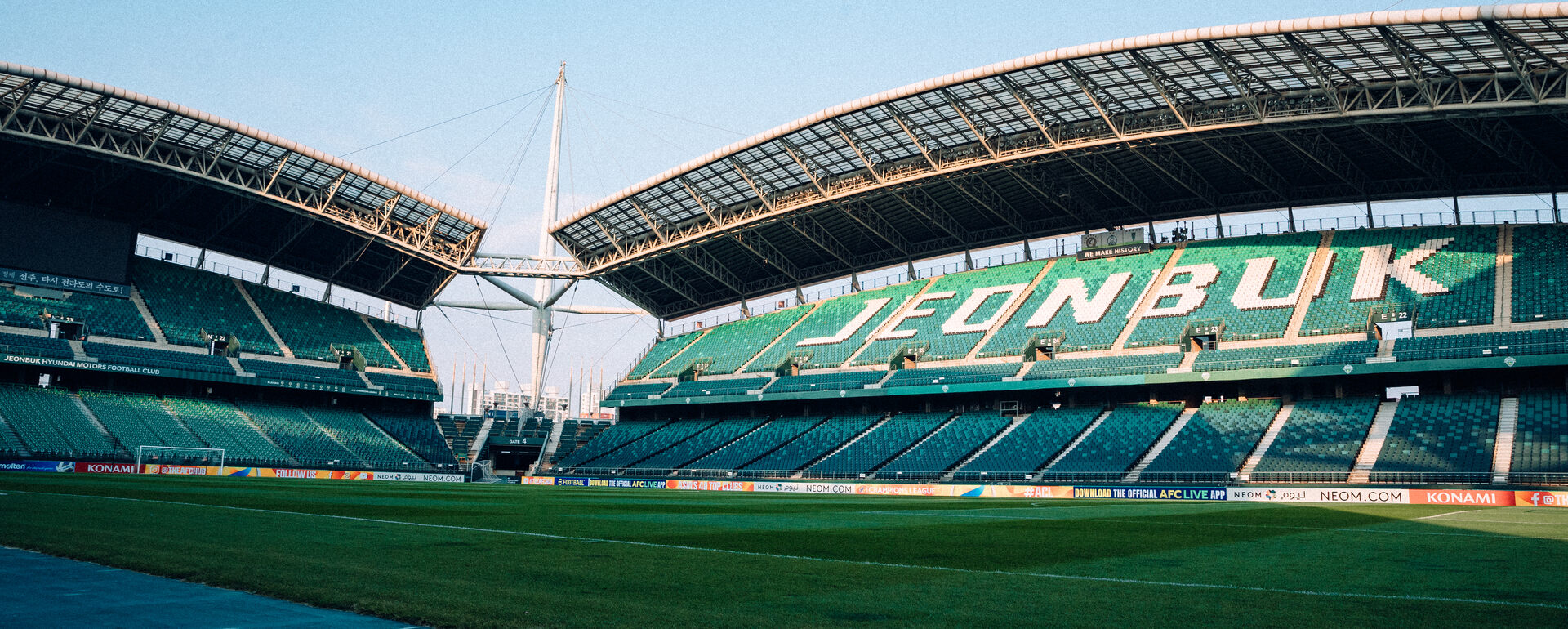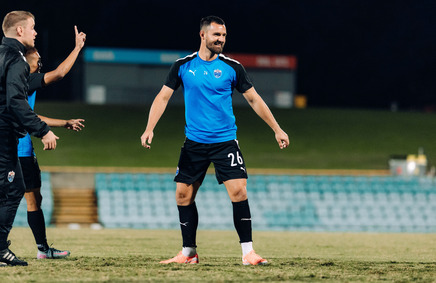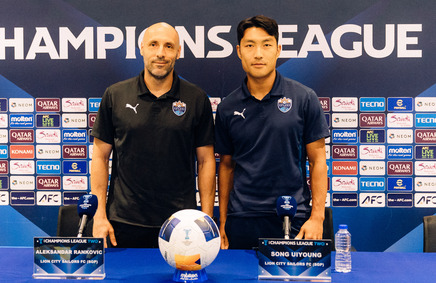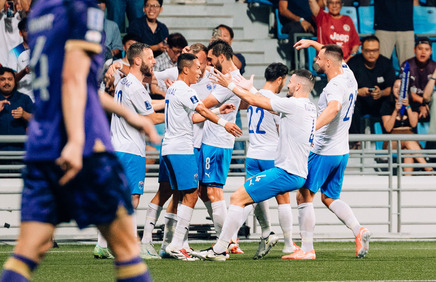In Battlegrounds Asia, we look into the history and lore of the stadiums that will host the Lion City Sailors’ second foray into the AFC Champions League (ACL), Asia’s top-tier club competition.
In the second part of this series, we dive headfirst into the Jeonju World Cup Stadium where the Sailors will line up against two-time ACL champions Jeonbuk Hyundai Motors.
In the picturesque South Korean city of Jeonju – a four-hour bus journey from Seoul – sits a physical manifestation of the city’s rich sporting heritage and its love for football – the Jeonju World Cup Stadium, one of the 10 stadiums constructed for the 2002 FIFA World Cup co-hosted by South Korea and Japan.
Real local flavour
The Stadium – which cost 133.1 billion Korean won (approximately SGD$135.3 million) to construct – was built with tradition in mind: the design of its roof and stands were inspired by the Hapjukseon, the traditional Korean fan.
The pillars of the Stadium’s fan-shaped roof are a metaphor for Sotdae, in Korean tradition, a pole erected as a talisman for well-being, protection, and a good harvest; while its 12 tensile cables embody the 12 strings of Korean musical instrument, the Gayageum.
The stadium can host some 43,000 spectators.
And this is perhaps where the city’s love for sports and its physical manifestation of that spirit come together in a simple, but beautiful intersection: from the stadium’s rooftop park, visitors can enjoy breathtaking panoramic views of Jeonju city and its surroundings.
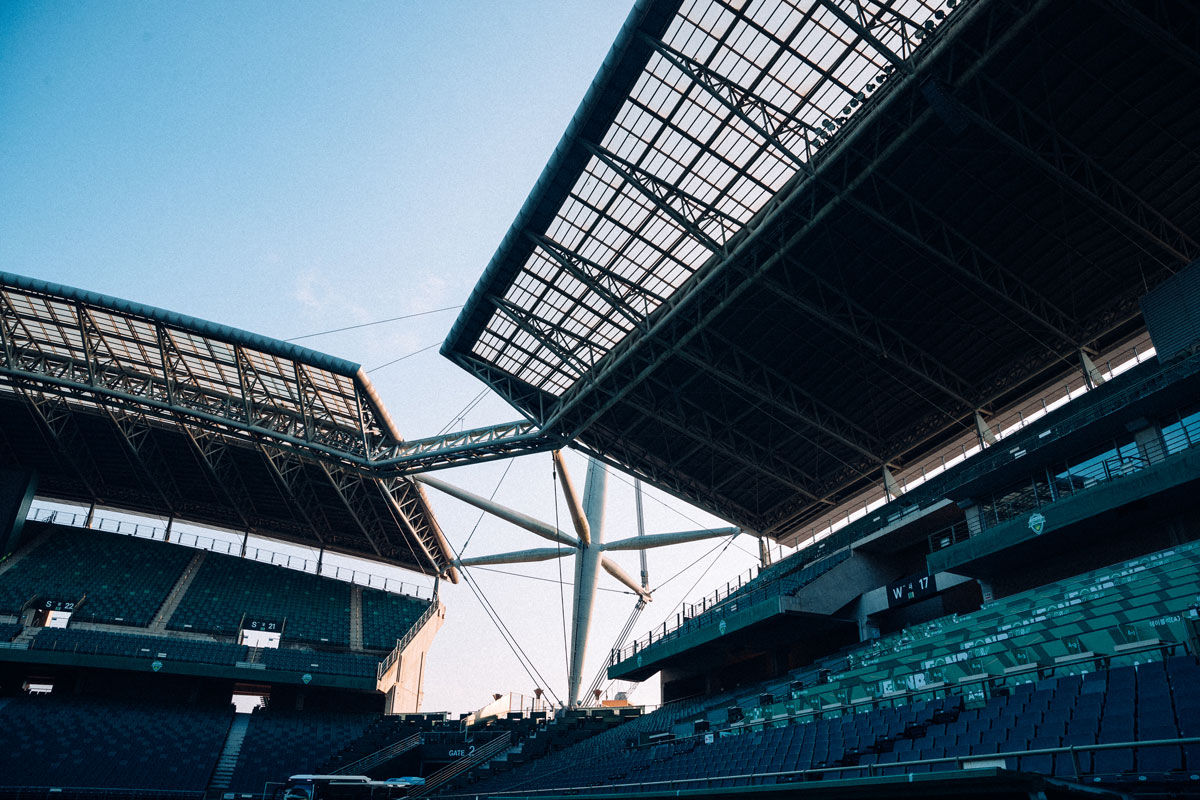
World Cup and ACL heritage
Officially opened on 8th November 2001, the Stadium hosted three FIFA World Cup matches – two group-stage games that saw Spain defeat Paraguay 3-1 and Portugal beat Poland 4-0, before a Round-of-16 match welcoming 36,380 fans who watched the United States defeat Mexico 2-0.
The Jeonju World Cup Stadium has been home to Jeonbuk Hyundai Motors since its official opening, witnessing several football moments over the years.
But strangely – despite winning the Asian Football Confederation Champions League (ACL) twice – Jeonbuk have never lifted the continental trophy in front of their own fans. In 2006 and 2016, they beat Syria’s Al-Karamah and UAE’s Al-Ain in the first leg of the respective finals at home before sealing the triumph in the away legs.
In 2011, when the final was held as a one-off affair to be hosted by one of the finalists, decided by draw, Jeonbuk were heavy favourites to win in front of a passionate 41,805-strong home crowd. But opponents, Qatar’s Al-Sadd, stunned the hosts by winning on penalties after an enthralling 2-2 extra-time draw.
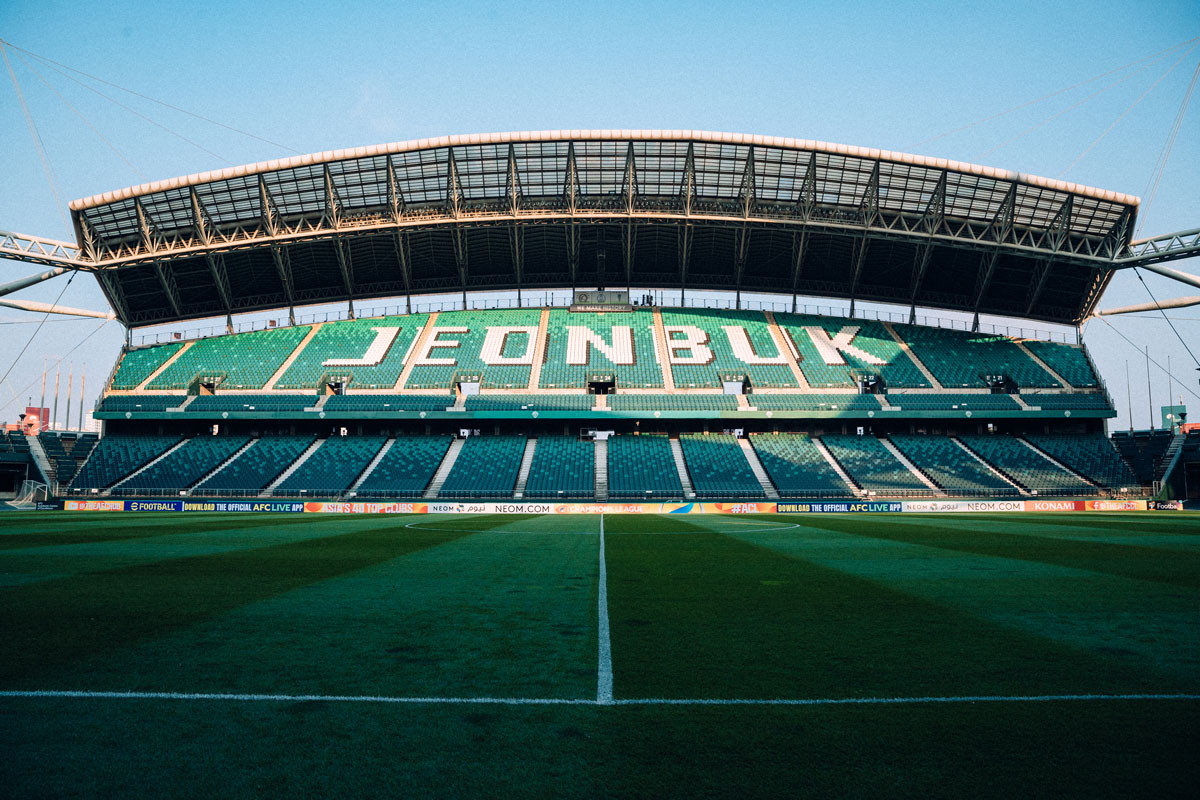
International focus
The Jeonju World Cup Stadium has been the scene of football dreams of young upstarts as well.
In 2017, the venue hosted 2017 FIFA Under-20 World Cup matches – including a memorable match that saw the Taegeuk Warriors claim a 2-1 group-stage win over an Argentina side that featured Juan Foyth and Gonzalo Montiel who went on to win the 2022 World Cup alongside Lionel Messi.
The football world’s attention again turned to Jeonju in May 2020 when the K League 1 became the first major competition to resume following the global Covid-19 shutdown, with the legendary Lee Dong-gook scored a late winner against Suwon Samsung Bluewings.
A year later, the Stadium hosted the quarter-finals and semi-finals of the 2021 ACL.
The knockout stages of the tourney were hosted in a single location, with Pohang Steelers beating Nagoya Grampus 3-0 while Ulsan Hyundai got the better of Jeonbuk 3-2 to advance to the ACL semi-finals. Pohang then emerged victorious over Ulsan at the venue to reach the final.
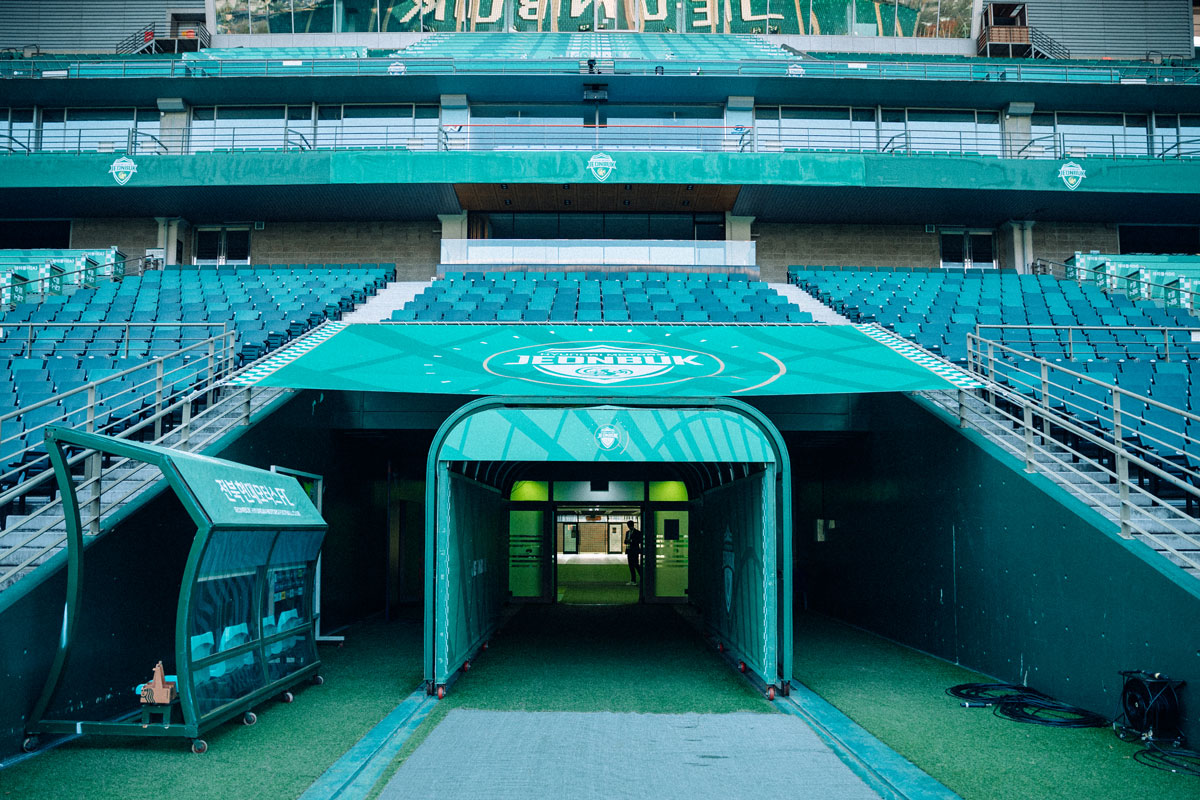 The Jeonju World Cup Stadium has also served as a venue for Korean cultural events, concerts, and festivals. And it hosted the opening ceremony of the Asia-Pacific Masters Games earlier this year in May, a unique sports-for-all festival aimed at driving sports participation across abilities and ages.
The Jeonju World Cup Stadium has also served as a venue for Korean cultural events, concerts, and festivals. And it hosted the opening ceremony of the Asia-Pacific Masters Games earlier this year in May, a unique sports-for-all festival aimed at driving sports participation across abilities and ages.
The Stadium was scheduled to host a K-pop concert in August as part of the World Scout Jamboree cultural programme, but concerns over Typhoon Khanun saw the event going elsewhere.
But football remains at the heart of the Jeonju World Cup Stadium, perhaps fuelled by the Mad Green Boys of the Jeonbuk Motors Supporters’ Club who are known to generate an electric atmosphere at the North Stand of the Stadium that feature safe-standing areas.
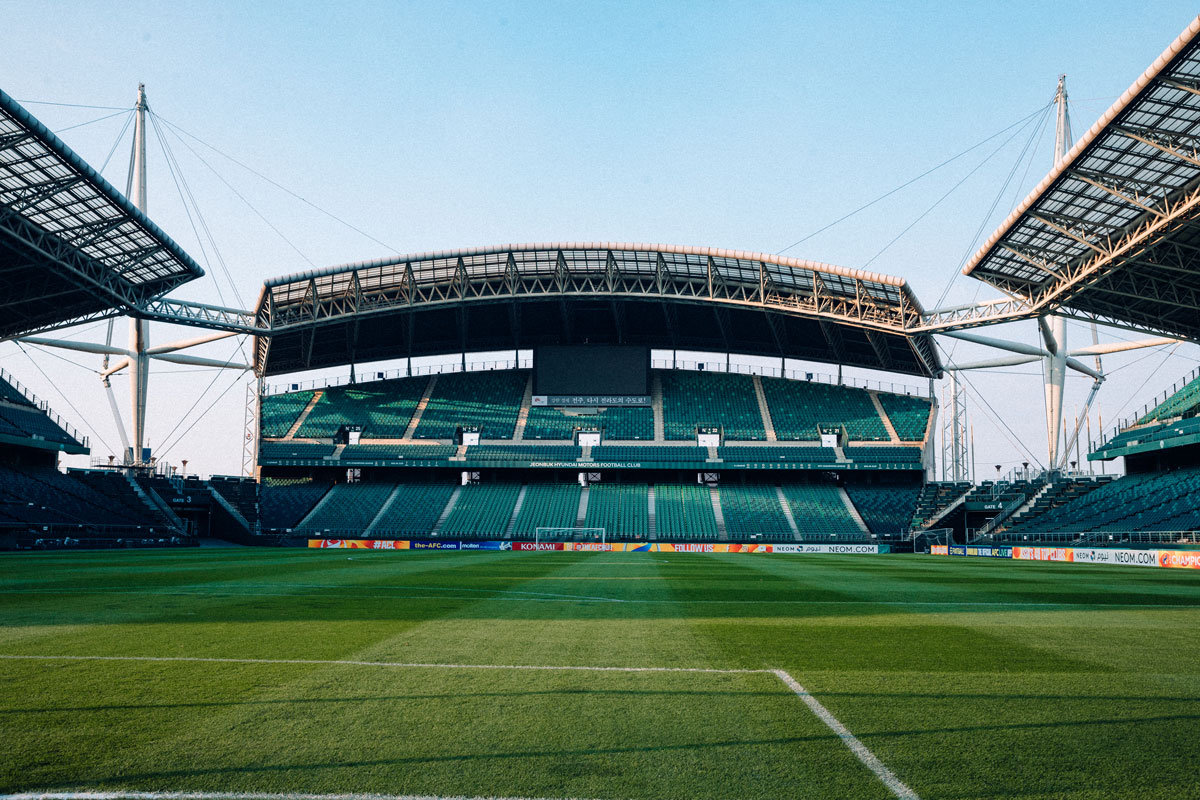
In Jeonju on Wednesday, Hariss Harun and the Sailors Class of 2023 will, for the first time, play at a venue that has hosted a historic FIFA World Cup match, with The Crew’s Special Operations Team screaming from the Stadium’s South stand as our Sailors look to write history of our own.













